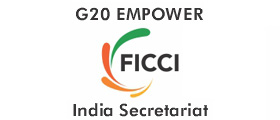Iaishah Rymbai was born in Kdonghulu, a matrilineal village dominated by the Khasi tribe. The Khasis – who account for the state's largest ethnic community – are one of the last existing matrilineal societies in the world.
“It is true that we Khasi women have the power but not nearly as much as you think,” Iaishah, 45, says. The Khasi community is matrilineal and is often upheld as an example of a gender equal society.
The woman who got married at 20 and divorced at 32 because she felt repressed by her husband, Iaishah stands testimony to a woman who means business.
For over 19 years now, Iaishah has been a full-time teacher in a government-aided upper primary school in her own village. But like most Khasi girls of her generation, Iaishah had learnt to spin and work the loom to create the exquisite Eri silk fabric. Before long, she realised that while she could work magic with her fingers, she also had an entrepreneurial drive to mobilise other women from her village to make a decent living from spinning yarn from the Eri silk cocoon.
“I wanted to be truly independent after wasting so many years in a bad marriage,” she says.
Her first foray into business – when she took out a loan of INR 1.8 lakh under the Prime Minister’s Employment Guarantee Programme - was not successful in the absence of a clear business plan. But the business was revived in 2018, when she received an order from the Bharat Scouts and Guide Organisation to supply them with 50 Eri silk scarves that they would use for the Republic Day march.
But when she began to look for yarn to weave the scarves – there was none because the villagers were selling the cocoon to buyers from across the north eastern states as a source material for yarn. “I realised with a pang that the death of the traditional local craft was not far away. And I resolved to revive Eri spinning in our village and Eri Weave was born.”
She reached out to other women weavers and with the help of block officials, raised awareness against selling the cocoon.
An INR 20 lakh grant allowed Iaishah to invest in creating a work-shed for 20 weavers where they could process the cocoons. She also invested in 10 mechanised solar-powered spinning machines. These machines will train women to produce far greater quantities per capita of the silk yarn than is currently possible with the hand spinner.
Isaiah also continues to advocate with the authorities for giving women weavers access to subsidised loans as part of the State Rural Livelihoods Mission. The Central Minister of Rural Development, Giriraj Singh, and the district collector, Arpit Upadhaya, visited Eri Weaves recently. “After these visits, there is hope that the government will do its bit to hold our hand and help revive the Eri business among the Khasis,” Iaishah says.
 |
 |
 |
These stories of women-led development have been compiled by UN Women India. All copyrights to the stories and images are held by UN Women India Country Office dated December 2022. |

